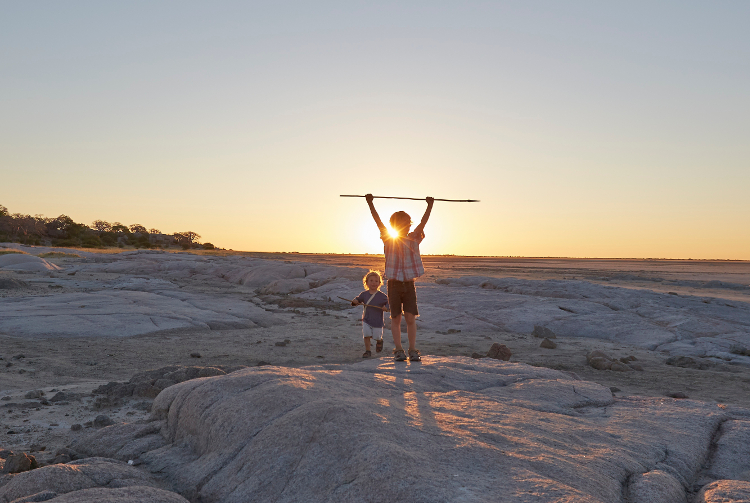
Research conducted by the Family Holiday Association (familyholidayassociation.org.uk) revealed that not only do family holidays comprise some of our happiest memories, but nearly 47% of people said that the anticipation was a large part of the excitement. For a safari, building this excitement and managing expectations is more important than usual. For kids venturing outside their comfort zones will present them with challenges: hot weather, weird toilets, scary animals and creepy crawlies. Talk about what they will see – big and small. Prepare them for what may be emotional encounters, such as a leopard eating an impala. Get them invested in the trip through reading, scrapbooking and researching conservation issues that might make good fodder for school projects.
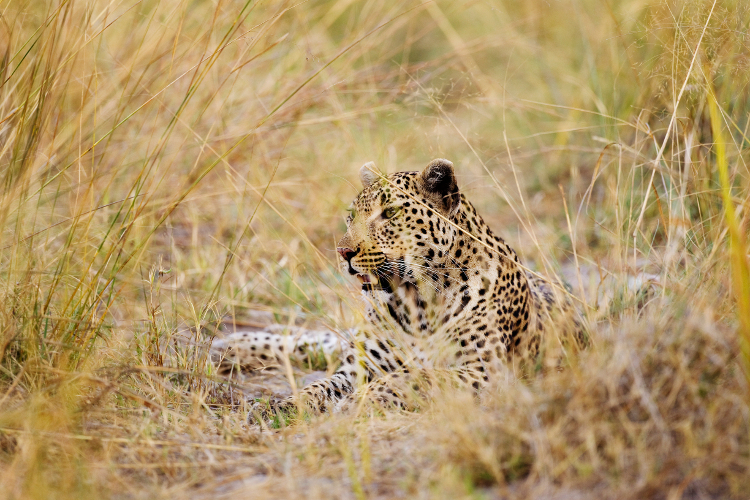
Checklists are another good way to engender that safari sense of exploration and discovery. Would they like to see those fingernail-sized reed frogs, swamp-loving sitatunga antelopes in the Okavango Delta or desert foxes with their comical bat-ears? Explain that the ecosystems in Botswana are among the richest and most diverse in Africa. Wherever possible involve them in the planning. Show them the camps and ask which they think is cool. Will they prefer fishing in Khwai Community Concession at Banoka Bush Camp or sleeping under the stars at Kalahari Plains Camp (wildnerness-safaris.com)? Shopping with them helps, too. Have a family discussion about the essential things they’ll need to pack – bonus points go to the first person to suggest mosquito spray! Determine who will be in charge of the new binoculars. A sense of responsibility and engagement will help them invest in the trip and enhance the sense of an exciting adventure.
Although adults might fret over where to go – the Central Kalahari Game Reserve, the Okavango Delta or Chobe National Park– the most important decision you’ll make is your choice of camp. Finding the right balance between adventurousness, comfort and security is critical to having a safe and happy trip. Unlike some safari destinations, camps in Botswana are situated in real wilderness, often on raised platforms and without fencing. The style of the camp also makes up a big part of the experience. Do you want somewhere enclosed, tented, on stilts in a lagoon or firmly on dry land? Choosing one or two places where your children can relax and get to know the guides and environment is much more conducive to a successful safari than covering lots of ground.
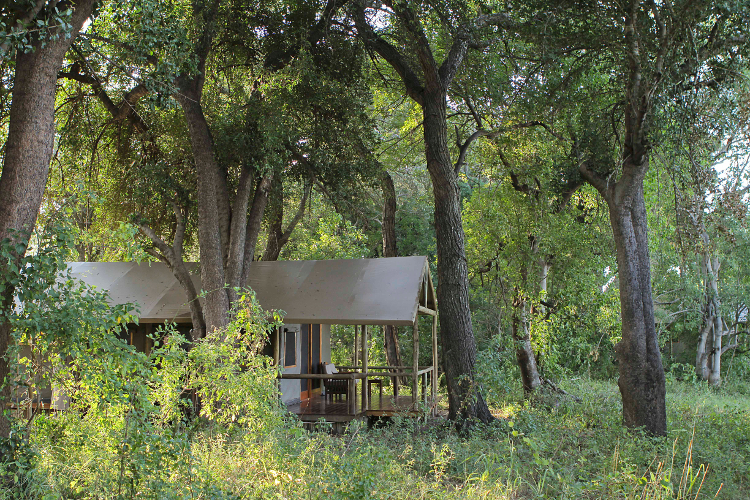
Camps and lodges in Botswana are extremely safety conscious and age limits apply. Some places only accept children over 12 years of age although more and more are accepting children as young as six, and a few take children even younger. All the camps mentioned here offer family tents or rooms. Likewise, activities and excursions are tailored to age and ability: nature walks (ages 7+), mokoro rides (ages 12+), horse riding (ages 12+) etc. Talking to destination experts such as Botswana Specialists (botswanaspecialists.co.uk) can help no end with crafting a sensible itinerary.
At the top of the market, the award-winning Young Explorers programme (ages 7+) from Ker & Downey Botswana (kerdowneybotswana.com) offers families the exclusive use of their Footsteps Camp within the Shinde Private concession, and days of carefully crafted fun learning camp craft, making bows and arrows, tracking wildlife, studying animal behaviours and fishing. But a growing number of other camps, including Duba Plains, Selinda Camp and Lagoon Camp (kwando.com), also offer similar programmes and dedicated family hosts. Other standouts include Mashatu Main Camp (mashatu.com) whose kids coordinator trained at Disney World and Meno a Kwena (menoakwena.com) where Basarwa trackers lead a meerkat safari.
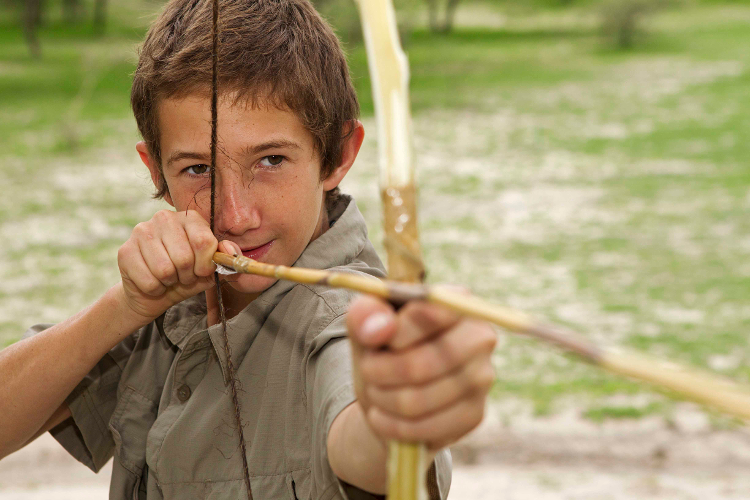
But successful safaris are about more than wildlife viewing. They require a change of perspective for parents as much as children. Hours spent crashing around the bush through difficult terrain in search of the Big Five will only end in tears (probably yours). See it through their eyes. Children engage with the world around them through discovery and exploration: luring an ant lion from its pit with a blade of grass or learning to sip water through the stem of a lily may both be more absorbing than sitting in a 4WD looking for large animals. So make sure you mix up wildlife drives with hands-on activities like fishing, camp craft or nature walks. Owner-operated camps, such as Nxamaseri Island Lodge (nxamaseri.com) and Kubu Lodge, and camps in private concessions, like Sango Safari Camp, usually offer guests more latitude in these areas as they can tailor make experiences. Many camps insist that families have their own private vehicle, an arrangement that ultimately works to your advantage as it means there’s room to bring along extra kit like books or sketch pads and the guide can focus on anything that takes your kids' fancy such as the oxpeckers in an impala’s ear or a huge puddle of elephant wee.
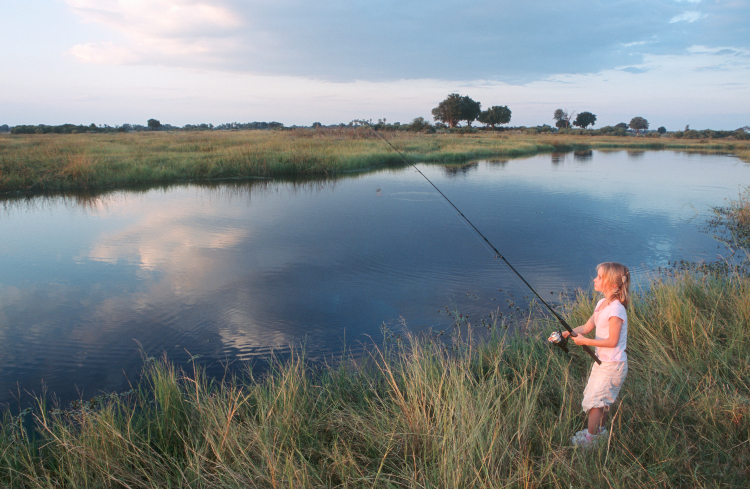
No matter the irresistible call of the wild, sometimes your kids just need to sleep and play and spending quality time in camp will revive wilting adventurers. All the camps mentioned above have swimming pools, and their wilderness locations means there’s often as much wildlife in camp as there is beyond. At Seba Camp you can even hang out with conservationists working on an elephant research project, while at Kubu Lodge hungry hippos sometimes wander out of the Chobe River to graze amid the raised chalets.
Time in camp is also the perfect opportunity for family bonding and memory making with photo sorting, scrapbooking, drawing and chatting about all the wonderful things you’ve seen and learnt. The Batswana are a very family-oriented society so you’ll often find your kids getting VIP tours of the camp or an impromptu lesson in building a campfire. Camps with more structured activity programmes will have them making jewellery, weaving baskets, learning local games, making catapults and even learning to shoot an air rifle. Even more than watching the wildlife, seeing how people live in the wilderness will foster a sense of connection, respect and wonder that will live in their memories for years.
• Botswana is a malarial area so you’ll need to seek the appropriate advice on malarial prophylactic for your children; suitable clothing and preventative sprays are also advised.
• Between mid-September and November the temperature in Botswana can reach 40°C. Also carefully consider the weather when visiting desert locations such as the Central Kalahari and the Makgadigadi Pans.
• Mobile camping is possible with children as young as six, but this is only for the very adventurous or experienced African traveller. Most tents sleep only two people and some children find the fun of camping fades quickly in the heat and dust. If you are considering a mobile camping trip talk to experienced providers such as Safari & Guide Services (sgsafrica.com) and Footsteps in Africa (footsteps-in-africa.com).